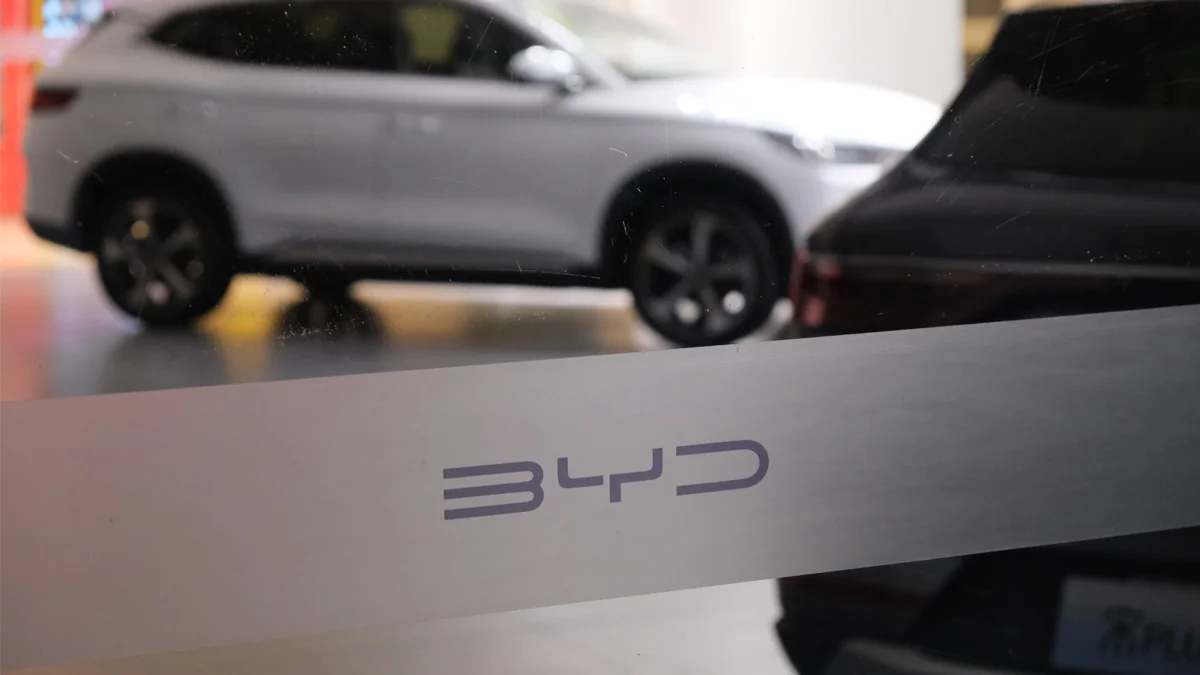
Distinguished professor at the UCLA Anderson School of Management, Christopher Tang, reveals how Chinese-made EVs could help the UK and EU go green.
Our earth is getting hotter. As the summer heat temperature rises, the UK and EU are transitioning to electric vehicles (EVs) to reduce carbon emissions. To meet their ambitious EV adoption targets, they should embrace those affordable EVs made in China.
The UK Government has announced that it will ban the sale of new petrol and diesel cars by 2030, and the EU has also set ambitious goals to have at least 30 million zero-emission vehicles on its roads by 2030. These goals are easier said than done. As the clock ticks, will these targets be met?
The tug of war in the UK and EU EV market
The Governments are optimistic, but car manufacturers and consumers have reservations. There is an uptick in EV sales in the UK and EU, partly due to high gasoline prices and Government subsidies for EV purchases. Over 20% of new cars sold in the UK and EU in December of 2021 were EVs. Tesla’s Model Y and Model 3 took the lead along with other popular brands, such as Volkswagen and Kia.
EV sales in the EU and UK are expected to overtake gasoline vehicles by 2025. This is encouraging news, but both the UK and the EU must find ways to sustain the growth of EV adoption, as the UK is in recession and a potential recession is looming over the Eurozone.
Certainly, a high inflation rate and higher EV prices would deter consumers from purchasing new EVs. As such, Government subsidies are essential incentives for consumers to purchase EVs over the next few years.
While different EU countries continue to offer different subsidies, the UK Government reduced its EV subsidy from £2,500 to £1,500 at the start of 2022 and removed it entirely for cars over £35,000. Hence, to meet the EV adoption targets in the UK and EU, offering cheap EVs that qualify for Government subsidy is key.
Given the high labour cost in the UK and EU, how can car manufacturers develop affordable EVs for the UK and EU markets?
The rise of Chinese EVs in Europe’s market
Importing EVs made in China is a pragmatic and effective solution. Currently, the US is effectively blocking the import of Chinese-made EVs. To protect domestic manufacturers, the US Government imposes a 27.5% import duty for cars. Also, only cars that follow stringent rules regarding the sourcing of battery materials and components are eligible for EV tax credits. This conservative policy, combined with higher interest rates, hinders EV adoption in the US.
Unlike the US, the UK and EU import duty on foreign-made cars is 10%. Better yet, all EVs — foreign and domestic — are eligible for EV purchase incentives. This liberal trade policy has enabled European carmakers to build EVs in China, export them to Europe, and sell them at affordable prices. For example, MG Motor is headquartered in the UK, but its MG5 EV and MG ZS EV are sold in the UK and the EU is made in China. Also, by selling both models under £35,000, both are eligible for EV purchase subsidies.
Besides European brands, China’s BYD is planning to sell its fully electric Atto 3 SUV and a few other models in the UK and EU in 2023. While BYD has also overtaken Tesla as the bestselling EV maker globally, with more than 1.8 million vehicles against Tesla’s 1.3 million last year, Europeans may be sceptical about the quality of cars manufactured in China.
However Chinese car manufacturers have improved their safety and quality after learning from their European partners and implementing their total quality management system over the last 20 years. Consequently, despite the fact that BYD’s early F3 models failed crash tests in 2011, the Atto 3 SUV received a five-star safety rating from the European New Car Assessment Program in 2022.
Besides safety quality, BYD also uses a vertical integration strategy – meaning it relies more on in-house processes for developing EV batteries and producing EV chips. By integrating these in-house research and development capabilities, BYD has more control over the cost, quality, speed of development, and supply of key components, which helps it quickly develop affordable EV models. BYD’s capability to develop affordable EVs has attracted Toyota to co-develop its first electric sedan bZ3 with BYD, which was launched in April 2023.
How protectionism hinders EV adoption in the UK and EU
Chinese-made EVs are making inroads. In 2022, over 15% of 1.2 million electric car sales in the EU were made in China.
This liberal trade policy is promising, but it has caused concerns among politicians. Some conservative political leaders in the EU are wondering if they should protect domestic manufacturers by following the American protectionism strategy to increase the import duty for foreign cars and impose more stringent eligibility requirements for EV purchase credit.
But protectionism in the EV market impedes competition and weakens innovation, resulting in higher purchasing prices and hindering EV adoption in the UK and EU.
Even if consumers are willing to purchase more expensive EVs without receiving any subsidies from the Government, European manufacturers are unlikely to have the capacity to produce tens of millions of EVs in Europe by 2030 especially when China controls 76% of global battery cell production capacity and has a dominant position in every aspect supply chain for raw materials, such as Cobalt and Lithium which used to manufacture all those batteries. Therefore, having more affordable EVs made in China can enable the UK and EU to propel EV adoption to curb carbon emissions quickly.
Our earth will not care which country will win the EV market. Fighting climate change requires cooperation, not competition.
Christopher Tang is a thought leader in global supply chain management with over 30 years of experience in different sectors across Europe, Asia, and the Americas.
Related and recommended
Richard Harpin, the founder of HomeServe and Growth Partner and owner of Business Leader, answers your burning business questions
Contestants from The Apprentice reveal the fundamental business lessons they learned from taking part in the TV show
From global talent pools to AI-powered documentation, a work-from-anywhere model is a new way of thinking about productivity, innovation and teamwork
The story of how cycling brought Business Leader member John Readman together with his co-founder and investors




